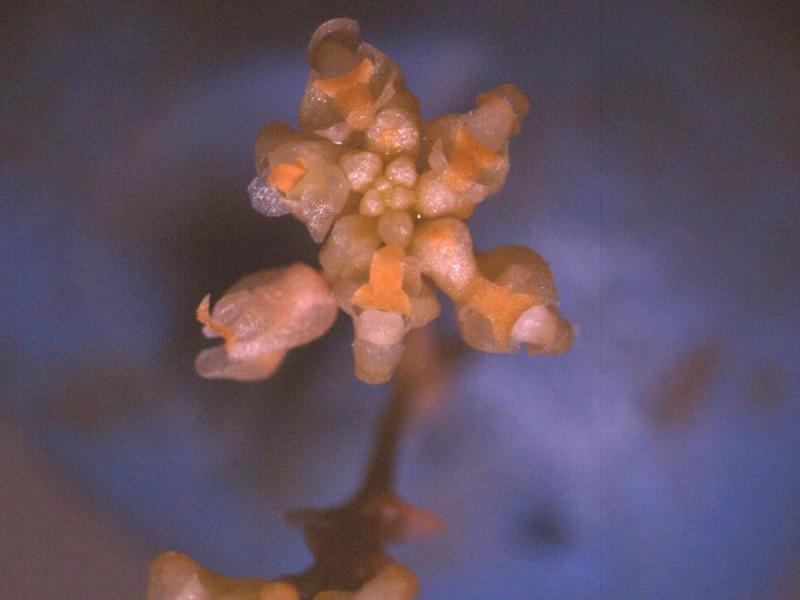Trizeuxis falcata
Also known as: The Sickle or Trizeuxis andina in the subfamily: Epidendroideae
Native to: Acre - Brazil Bahia - Brazil Departamento del Huila - Colombia Ecuador Loreto - Peru Mato Grosso do Sul - Brazil Provincia de San Jose - Costa Rica Provincia de Veraguas - Panama Sao Paulo - Brazil
General Information
The Sickle is a miniature sympodial cool to hot growing epiphytic orchid belonging to the sub family Epidendroideae native to Brazil, Colombia, Ecuador, Peru, Costa Rica, and Panama.
Plant Description
Sympodial. Grows to 2.5-10cm. Each new growth has a single lance shaped oblong shaped leaf that grows to 1-10cm long. Pseudobulbs grow to 2cm
Substrate(s)
- Treefern
- Spaghnum Moss
Care Notes
These orchids have a fine root system that can quickly die back if left dry for too long, but also does not like to be kept wet, so water regularly but ensure that the mix is dry before watering.
Climate
Grows at low to high elevations. Rainfall ranges from 203mm to 381mm per day, heaviest in October and lightest in July. Humidity ranges from 87% to 89%, highest in January and lowest in February. Temperature ranges from 17C to 28C, highest in March (18C to 28C) and lowest in January (17C to 26C).
Fertiliser
Apply liquid based fertiliser per recommended directions. They can benefit from a high phosphate fertiliser leading up to flowering season, followed by a high nitrogen fertiliser when new growth appears, and a balanced fertiliser in other times. These orchids can also tolerate slow release fertiliser applied 1-2 pellets per cup (250ml) of media.
Use balanced fertiliser during Spring and Summer. Apply fertiliser regularly at half strength year round. Use a high Nitrogen fertiliser during Spring and Summer. Use a high Phosphorous fertiliser during Summer.Potting
These plants are quite forgiving and will do well repotted ever 2-3 years. The mix should be coarse, well draining, and allow space for air to move and for roots to grow.
Alternatively, these plants will also do well mounted to tree fern or cork slabs, or mounted to trees.
Best time for repotting or mounting the orchids is the end of winter when new growths start to appear. Avoid repotting during hot weather,
This plant does well mounted. Repotting is best done annually.




















